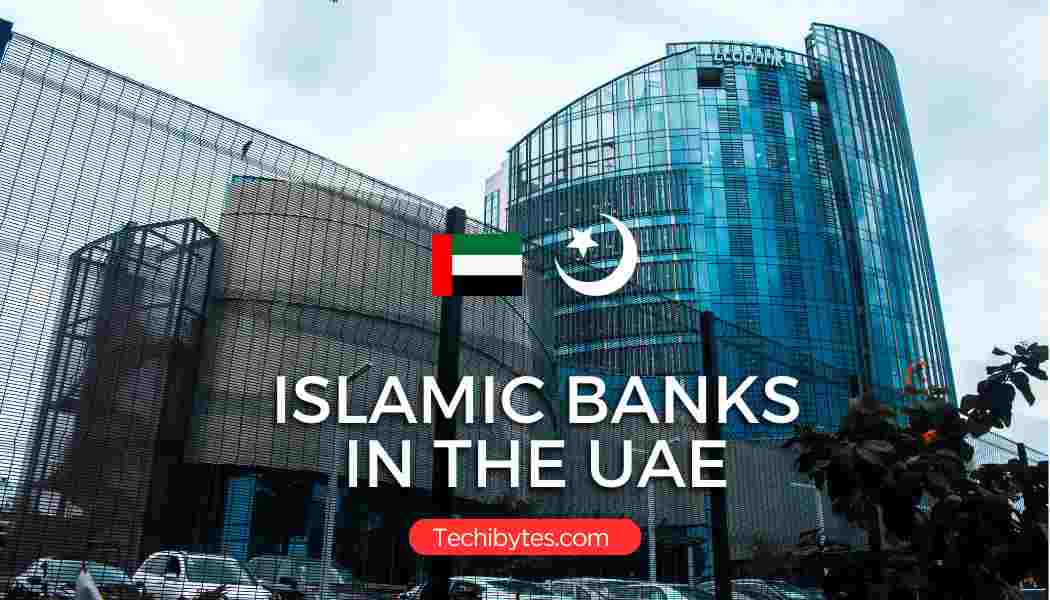In the United Arab Emirates, Islamic banking has undergone a revolution of sorts in recent years. Even while the idea of Islamic banking is not new, its significance has increased dramatically in recent years. This is mostly because of greater awareness and encouragement from the government.
The United Arab Emirates offers some of the world’s greatest banking services when it comes to the financial industry. More interestingly, Dubai is home to several excellent Islamic banks that serve anyone seeking Sharia-compliant banking services.
In this post, we’ll take a look at some of the best Islamic Banks in The UAE. This post will be beneficial and insightful so we urge you to read it to the end.
Table of Contents
Before we go on to list the best Islamic Banks in The UAE, let’s first know what we mean by Islamic banking.
WHAT IS ISLAMIC BANKING?
Islamic banking is a method of carrying out banking operations following Shariah principles while avoiding any banned activities like interest/riba, trading in industries that are prohibited (such as alcohol and gambling), Gharar (uncertainty), etc.
One of the foundations of Islamic finance is “interest-free banking.” Avoiding interest-based transactions and other immoral and socially unacceptable behaviors that are forbidden by Shariah, such as unfair trading practices, hoarding, speculating, etc., is what Islamic banking entails. Therefore, as opposed to “conventional money lending,” Islamic banking transactions are founded on “tangible assets and real services.”
CAN A NON-MUSLIM HAVE AN ACCOUNT IN ANY ISLAMIC BANK?
Yes. A non-Muslim can have an account in any Islamic bank. Islamic banking is for all individuals regardless of their religious beliefs. Islam’s precepts apply to both Muslims and non-Muslims.
The two fundamental tenets of Islamic banking are universal virtues such as justice, honesty, and avoiding fraud. Islamic banking is therefore available to all people, regardless of their religion.
There are several reasons why non-Muslims should engage with Islamic Finance providers, even if Muslims make up the majority of their clientele because these services are designed following Islamic Law.
Islamic finance services like halal equity funds can be even more alluring than traditional ones when it comes to competitiveness.
To put it briefly, the main takeaway for investors is that Islamic finance is a rapidly expanding sector due to its broad appeal. For astute investors, its strong moral underpinnings and outstanding performance make it a profitable option to research and diversify into.
THINGS NON-MUSLIMS NEED TO KNOW ABOUT ISLAMIC FINANCE
1. Islamic Banking Is Predicated On Reputable Islamic Writings.
The sacred books, the Quran and the Prophetic Teachings, which serve as a Muslim’s ultimate source of morality and values, constitute the foundation of Islamic finance. Islam is a way of life because of the ideals and ideas inherent in these writings, which include both spiritual and material realms.
These principles of Islamic finance can be considered global ideals for good because they are essentially in line with the majority of ethical systems that have been adopted by Human Civilization.
Except for a few important traits that distinguish Islamic finance, its attributes align with those of the traditional financial model. In Islam, entrepreneurship and the pursuit of profit are not only acceptable but also encouraged.
2. No Socially-undesirable Activities
Islamic finance refrains from engaging in what is referred to as non-Halal or haramous, or socially undesirable, commercial practices. Businesses are not allowed to transact with those industries that are thought to be detrimental to society.
Thankfully, the Holy Books have made a clear distinction between them, and the majority of them—such as alcohol, gambling, the adult and prostitution industries, and so forth—are simple to identify.
3. Strong Prohibition Of Specific Interests
The main reason conventional financing is forbidden is usury, or interest on money, also referred to as Riba. Interest, or riba, is forbidden because it keeps people from engaging in legitimate economic activity.
This is because it becomes easier for a person with money to make money without bothering to put in the effort necessary to engage in actual economic activity when they are permitted to earn additional money based on interest, whether in spot or delayed transactions.
Since it places an excessive burden on the borrower while the lender gains wealth effortlessly, it is completely forbidden.
HOW DO ISLAMIC BANKS MAKE MONEY?
Since money is solely used as a medium of exchange and not as a commodity, one naturally wonders how Islamic banks turn a profit. Islamic banks use what are known as Murabahah and Mudharabah, or profit-sharing or product trading.
It is noteworthy that, in contrast to the traditional approach, banks and investors share the risk. Companies usually own intrinsically valuable underlying assets as well. This is surely one of the factors that have contributed to the Islamic finance sector’s durability and stability during the most recent financial crises.
BEST ISLAMIC BANKS IN THE UAE
Now let’s list some of the best Islamic Banks in The UAE. The following are some of them:
1. First Abu Dhabi Bank
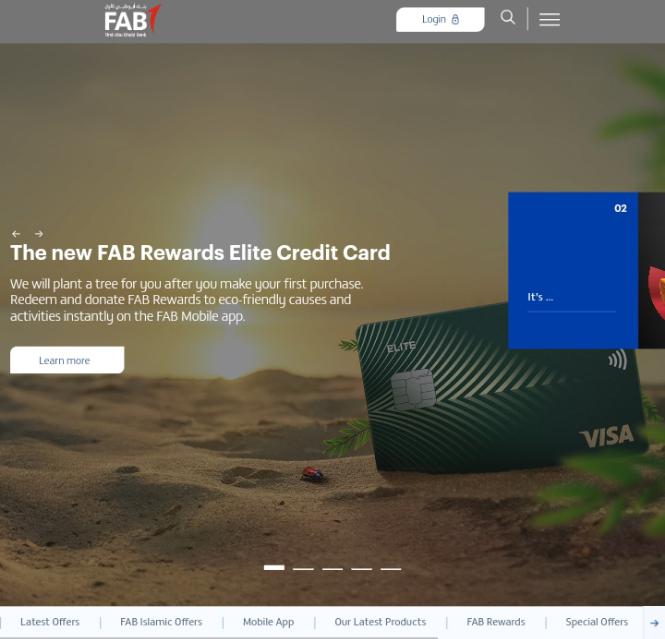
Kicking off our list of best Islamic Banks in The UAE is First Abu Dhabi Bank commonly referred to as FAB. FAB is one of the largest financial institutions in the UAE. It was founded in 1979, has its main office in Abu Dhabi, and provides strategic services to cater to the basic banking needs of clients worldwide.
The goal of First Abu Dhabi Bank is to always prioritize the needs of its clients by inspiring them to reach their objectives. FAB offers a variety of services and products, such as business, corporate, international, and personal banking.
2. Emirates Islamic Bank
Next on our list of best Islamic Banks in The UAE is Emirates Islamic Bank. Emirates Islamic Bank was established in 2004 and provides services following Shari’a law. Emirates Islamic Bank offers its clients transparent transactions through the use of Islamic finance instruments like murabahah, ijarah, and takaful.
With some of the greatest programs offered in Dubai, Emirates Islamic Bank offers personal, business, and corporate banking solutions. In case you are unclear about the services that suit your needs, their team of committed specialists can offer guidance on Sharia-compliant options that meet your standards.
To provide clients with conventional financial solutions, Emirates Islamic Bank offers a wide range of services.
3. Ajman Bank
Ajman Bank is next on our list of best Islamic Banks in The UAE. It is one of the oldest Islamic Banks in The Ajman Emirates having been founded in 2007. It has branches spread throughout the United Arab Emirates.
Ajman Bank stands out because of its wide range of offerings which include investment banking, consumer banking, treasury and capital markets, investor relations, etc. Its goal is to rank among the top financial services brands in the United Arab Emirates and the surrounding area.
You might like: Top: Best Banks in Canada you should Know right now
4. Sharjah Islamic Bank
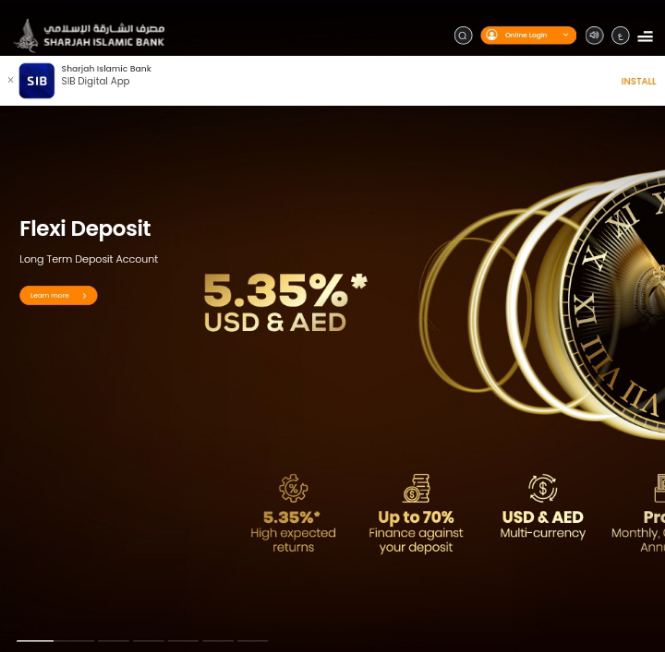
Sharjah Islamic Bank is also one of the best Islamic Banks in The UAE. It was established in 1976 but began putting Sharia law into practice in 2004. It was formerly called the National Bank of Sharjah.
Sharjah Islamic Bank is a publicly traded Islamic bank with its main office located in the United Arab Emirates’ Sharjah Emirate. The bank serves individuals, businesses, organizations, and investors by offering Sharia-compliant services.
Bank of Sharjah offers a broad range of products and services, such as retail banking, corporate banking, investment banking, investor relations, etc., in line with its mission to be the bank of choice.
5. Mashreq Bank
Mashreq Bank is arguably one of the most popular Islamic Banks in The UAE. It was originally called the Bank of Oman. It was established in 1967 and is headquartered in Dubai.
It was the first bank to offer consumer loans as well as debit and credit cards. To become the forward-thinking bank in the area, Mashreq works hard to offer its clients cutting-edge services.
Mashreq Al Islami provides a range of financial services, such as bank account opening, personal and business banking, corporate banking, credit and debit card issuance, travel, and entertainment, home and auto finance, and a growing retail presence in Egypt, Qatar, Bahrain, and Kuwait.
They even provide you with a special rewards program called Mashreq Salaam Rewards to assist you in getting the most out of your money. This is a bank that you should take into consideration if you’re looking for Islamic investment banks in Dubai.
You might like: 11 Best Top Virtual Card Providers For Businesses
6. Abu Dhabi Islamic Bank
Abu Dhabi Islamic Bank has been existing since 1997. It was founded as a public joint stock corporation following Sharia law and has grown to become one of the most prominent Islamic Banks in The UAE.
ADIB, as it’s often referred to, offers a range of services to help young football players, workers, cricket fans, and financial education. Personal, private, business and corporate banking are among the services offered by ADIB.
7. Al Hilal Bank
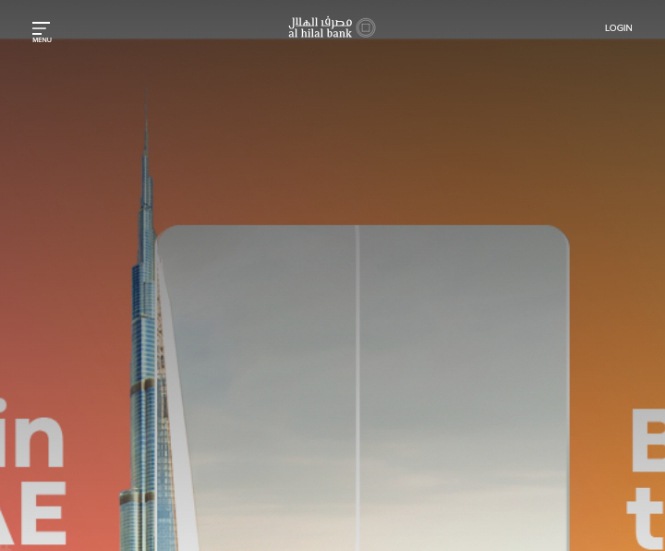
Next on our list of best Islamic Banks in the UAE is Al Hilal Bank. It was established in 2008. Al Hilal Bank is a forward-thinking Islamic bank best known for its promotion of products such as the Qibla Card, the first credit card in the world with a digital compass, the Laha Al Hilal credit card, the first credit card in the UAE that allows you to customize the card’s scent, and Egrab, the world’s first mobile branch and money station that is powered entirely by electricity.
Al Hilal offers a range of services like Personal, Wholesale, Treasury banking, and more, all in line with its objective to continuously create new standards that redefine Islamic banking.
You might like: How Open Banking Fintech in Africa will shape the continent
8. Noor Bank
Noor Bank is another popular bank in Dubai that provides Islamic banking that complies with Sharia law. This bank is relatively young, but it has made a great impression on the Sharia banking market in Dubai by offering efficient, rapid, and safe services.
Noor Bank gives its customers the best Sharia-compliant banking in Dubai, from Islamic accounts and deposits to personal and business financing alternatives making it stand out as one of the best Islamic Banks in the UAE.
9. Union National Bank
Next on our list of best Islamic Banks in the UAE is Union National Bank. It is one of the top local banks in the United Arab Emirates and was founded in 1982 as a public joint stock company and has its main office in Abu Dhabi.
Targeting consumer demands ranging from basic to complicated corporate entity requirements, Union National Bank provides a broad range of goods and services.
Union National Bank offers a range of services and products, like personal, business, private, and Islamic banking, among others, in line with its mission to be the greatest bank.
10. Dubai Islamic Bank
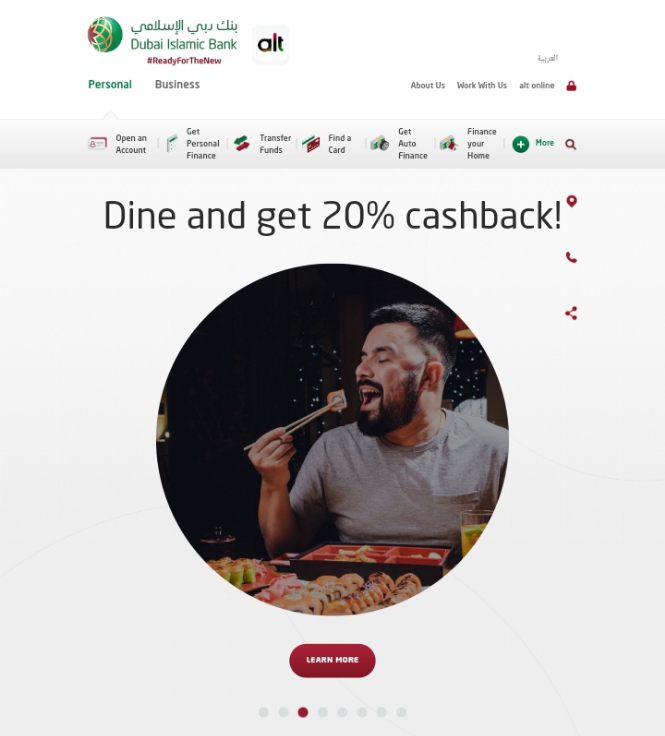
Dubai Islamic Bank is next on our list of best Islamic Banks in the UAE. It is one of the first banks in Dubai and the UAE to provide financial solutions complying with Sharia law as it was founded in 1975.
Dubai Islamic Bank is one of the biggest Islamic banks in the UAE with more than 90 branches around the United Arab Emirates. They specialize in a wide range of financial services for individuals and businesses like savings plans, creating Islamic bank accounts, and much more. Because of their carefully chosen online banking alternatives, you can even manage your money while on the road.
You might like: 11 Best Receipt Scanner Apps For Businesses
11. Emirates NBD
Emirates NBD is another name on the list of Islamic banks in the UAE. Since its founding in 2007, this bank has grown to rank among the greatest in Dubai.
Opening an Islamic current account and choosing from a variety of deposit plans that use profit-sharing systems are just two of the many Sharia financial services that Emirates NBD provides in Dubai.
They even provide Sharia-compliant wholesale banking services to businesses in manufacturing, construction, real estate, trading, hospitality, healthcare, education, and other industries.
Emirates NBD is last on our list of best Islamic Banks in the UAE but it is not the least.
FAQS
How different is Islamic banking from conventional banking?
The ban on usury and speculation in Islamic banking is one of the main distinctions between it and traditional financial systems. Any kind of speculation or gambling, known as maisir, is outright forbidden by Shariah. Moreover, Shariah forbids charging interest on loans. Additionally, it is banned to make any investments involving goods or substances that the Quran forbids, such as gambling, alcohol, and pork.
How do Islamic Banks make money?
Islamic banks use profit-sharing-like mechanisms called equity participation systems to make money without charging interest as is customary. When a business receives a loan from a bank, equity participation refers to the business’s agreement to repay the loan interest-free and to provide the bank with a cut of the business’s profits. The bank is also not compensated if the company defaults or doesn’t turn a profit.
What Is the Basis of Islamic Banking?
The foundation of Islamic banking is in the principles of Islam concerning business dealings. The primary holy text of Islam, the Quran, serves as the foundation for Islamic banking practices. All transactions in Islamic banking must abide by Shariah, the Islamic legal code founded on the Quran’s teachings. In Islamic banking, the regulations that control business dealings are known as fiqh al-muamalat.
Which four elements make up the Islamic banking system?
The Islamic banking system is made up of the Islamic capital market, Islamic insurance or takaful, Islamic banking system, Islamic money market, and specialized financial organizations that offer other funding sources.
How do Islamic banks manage risk?
Profits and losses are shared by customers of a pure Islamic bank. The moral code that underpins Shariah acknowledges that business endeavor is good yet intrinsically risky, but it does not aim to eradicate risk. Hence, to keep risks below undesired levels, banks must control them.
Islamic banks must also make sure that, following Shariah, their risk management does not consist solely of taking speculative risks. Conventional investment banks might provide the impression that they are placing bets on changes in exchange rates or the values of financial assets, as you shall see next week.
What are the key concepts of Islamic banking?
Islamic banking, also referred to as Islamic finance or Shariah-compliant finance, refers to financial activities that adhere to Shariah (Islamic law). The sharing of profit and loss and the restriction on interest collection and payment by lenders and investors are two of the core tenets of Islamic banking.
FINAL WORDS
If you abide by the Shariah even in your finances, as every faithful Muslim should, and you live or visit Dubai, you could try one of these Islamic Banks in the UAE to have a seamless banking experience.
All the banks on this list are banks with world-class ratings. You’ll have no regrets choosing from this list. Feel free to share your comments below.
REFERENCE
- https://www.luxuryproperty.com
- https://emiratesdiary.com
- https://www.globalbankingandfinance.com
- https://www.islamicfinance.com
